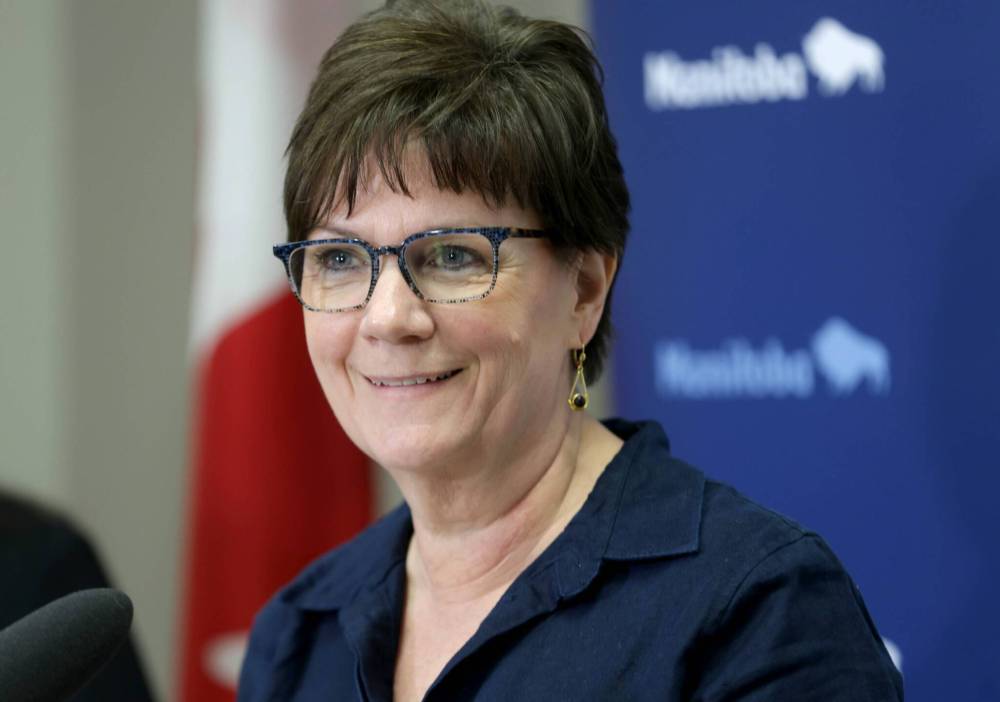Prioritizing addictions and recovery services
Advertisement
Read this article for free:
or
Already have an account? Log in here »
We need your support!
Local journalism needs your support!
As we navigate through unprecedented times, our journalists are working harder than ever to bring you the latest local updates to keep you safe and informed.
Now, more than ever, we need your support.
Starting at $15.99 plus taxes every four weeks you can access your Brandon Sun online and full access to all content as it appears on our website.
Subscribe Nowor call circulation directly at (204) 727-0527.
Your pledge helps to ensure we provide the news that matters most to your community!
To continue reading, please subscribe:
Add Brandon Sun access to your Free Press subscription for only an additional
$1 for the first 4 weeks*
*Your next subscription payment will increase by $1.00 and you will be charged $20.00 plus GST for four weeks. After four weeks, your payment will increase to $24.00 plus GST every four weeks.
Read unlimited articles for free today:
or
Already have an account? Log in here »
Hey there, time traveller!
This article was published 15/03/2023 (1043 days ago), so information in it may no longer be current.
Recent years have borne some immense challenges. Many of us have friends and family members who struggled to cope with the economic and social disruptions caused by the pandemic, and many more still struggle today.
The prevalence of substance use increased dramatically in this period — not just here in Manitoba but across Canada and around the world. Like never before, the demand for mental health and addictions services has risen substantially.
As minister of mental health and community wellness, my department is responsible for overseeing the addictions treatment system in Manitoba. We believe recovery is possible for everyone who chooses it, and our team is here to help people on this journey.

Janice Morley-Lecomte, minister of mental health and community wellness, makes a funding announcement for new addictions treatment services in rural Manitoba in Portage la Prairie on Tuesday. (Ruth Bonneville/Winnipeg Free Press)
Every life lost to addiction is tragic, and more must be done to help Manitobans who are struggling. This means ensuring prevention, early intervention, treatment and long-term recovery services are available when people are ready, so no one is left behind when they ask for help.
Sadly, there is no quick or simple solution to these complex health challenges. Yet too often, advocates of harm reduction profess mistakenly that supervised consumption sites are the “silver bullet.” There is no easy fix. The evidence is clear that a continuum of care is needed to help people overcome substance use disorders.
Valuable knowledge can be gained from experiences in other jurisdictions. Portugal, for example, began investing heavily in treatment and recovery facilities in 2001 before opening its first supervised consumption site more than a decade later. This was done to ensure a high-functioning treatment system was in place first to help people in need.
In Manitoba, we cannot accept a singular focus on harm reduction that keeps people mired in active addiction. Individuals and their families need to know the services they receive are helpful and offer a safe pathway to recovery.
Meanwhile, as substance use proliferated during the pandemic, the federal government began issuing exemptions under section 56.1 of the Controlled Drugs and Substances Act to permit the establishment of supervised consumption sites in Manitoba. While oversight of health-related service delivery within its jurisdiction traditionally rests with the province, the federal exemption provisions were granted outside of the purview of the Manitoba government.
We have serious concerns with this practice. The absence of an established framework or safeguards around these sites raises concerns about the potential of fly-by-night operations and risks to the public at large. Moreover, there are no requirements for the sites to register clients, maintain licensed health-care staff on-site, refer clients to treatment services or track outcomes. Without proper oversight and accountability, it is difficult to identify if the sites are actually helping people and connecting them with treatment.
Vulnerable Manitobans and their families deserve better. We believe everyone seeking access to addictions services must receive high-quality care that is consistent with current evidence and best practices.
Manitoba is prepared to take action to ensure necessary protections are in place. Forthcoming measures could open a new window in the future for licensed and regulated supervised consumption sites to be established in Manitoba, appropriately situated within a continuum of addictions care facilities, along with broader efforts to promote recovery.
To help people escape from addiction, comprehensive services are needed and this is exactly how we will move forward. We will continue to invest in new and expanded treatment capacity across Manitoba, including next steps in our pledge to add 1,000 treatment spaces available free of charge for people to receive addictions care.
We will prioritize programs and services we can all agree are effective. These include withdrawal management services, bed-based treatment programs and long-term sober living. Similar to Portugal, we have learned from the experts there is strong evidence supporting the efficacy of programs like these in helping people to recover. The opposite can be said for supervised consumption sites, alone.
As a government, we will treat people with compassion and respect and give them a fighting chance at recovery instead of just enabling them to continue using. Putting money into treatment centres and increasing access to them will offer people struggling with addiction a better chance for recovery in the long term.
It’s about helping people. It always has been. This is why we will continue to focus on getting Manitobans the help they need to pursue recovery and live to their full potential.
JANICE MORLEY-LECOMTE
Minister, mental health and
community wellness
